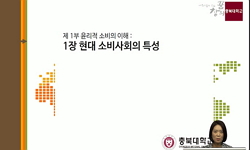The long-term development of a mobile gaming application (app) depends on its continued use by its users. The aim of this study is to investigate the determinants of a mobile gaming app’s continuance intention among users. The expectation-confirmati...
http://chineseinput.net/에서 pinyin(병음)방식으로 중국어를 변환할 수 있습니다.
변환된 중국어를 복사하여 사용하시면 됩니다.
- 中文 을 입력하시려면 zhongwen을 입력하시고 space를누르시면됩니다.
- 北京 을 입력하시려면 beijing을 입력하시고 space를 누르시면 됩니다.
EXTENDING THE EXPECTATION-CONFIRMATION MODEL OF IS CONTINUANCE: THE ROLE OF EMOTIONS IN USERS’ CONTINUANCE INTENTION TOWARDS MOBILE GAMING APPLICATIONS
한글로보기https://www.riss.kr/link?id=A105472104
- 저자
- 발행기관
- 학술지명
- 권호사항
-
발행연도
2018
-
작성언어
English
- 주제어
-
KDC
325
-
등재정보
01
-
자료형태
학술저널
-
수록면
1477-1477(1쪽)
- 제공처
-
0
상세조회 -
0
다운로드
부가정보
다국어 초록 (Multilingual Abstract)
The long-term development of a mobile gaming application (app) depends on its continued use by its users. The aim of this study is to investigate the determinants of a mobile gaming app’s continuance intention among users. The expectation-confirmation model of IS continuance was used as the basic framework, to which bi-dimensional consumption emotions were added to help better explain satisfaction judgment and continuance intention in the context of mobile gaming app use. To test the expanded IS continuance model, we conducted an online survey among mobile gaming app users; 271 valid responses were collected. The data were analyzed using structural equation models (SEM). The effects of positive emotions (PE) and negative emotions (NE) were examined, respectively, in model 1 and model 2. Competing models (models 3, 4 and 5) were also examined in order to compare the proposed models. Both positive and negative emotions have a significant effect on the satisfaction of mobile gaming app users and their continued usage intention, a finding that represents an important contribution to the extension of technology continuance theory. Comparison with the IS continuance model shows that the new model can explain significantly more variance in continuance intention. This study presents two extensions to the expectation-confirmation model of IS continuance. First, this paper presents and tests a theoretical model, derived from the IS continuance model, in which emotions play an important role in measuring customer satisfaction and subsequent long-term behavioral intention. The proposed model can be used to predict the satisfaction and continuance intention of situations in which a consumer’s emotional expectations and reactions are a core part of the consumption experience. Second, we ground the expectation-confirmation model of IS continuance in the context of mobile gaming apps, which involves both utilitarian (cognitive) and hedonic (affective) components. This study offers insight into the role of emotions in forming continuance intentions toward mobile gaming app use in China, a topic that has not previously been investigated. The findings have important implications for practice in the mobile gaming app sector. Special attention should be given to users’ consumption emotions, since emotions have been found to be strongly related to satisfaction and subsequent continued usage intention. For instance, mobile games firms should make efforts to develop strategies to enhance game players’ positive emotions (such as feeling joyful, interested, cheerful, excited, active, attentive) during the games because game players’ emotional fulfillment leads to satisfaction and minimizes negative emotions (such as feeling distressed, ashamed, afraid, nervous, upset or lonely); such negative emotions have been shown to have a direct and strong effect on satisfaction as well as an indirect effect continuance intention via satisfaction.
동일학술지(권/호) 다른 논문
-
FRONTLINE EMPLOYEES’ BEHAVIOR IN SERVICE RECOVERY: THE COMBINATION CAUSES OF SELF-REGULATING PROCESS
- 글로벌지식마케팅경영학회
- Mo Zhang
- 2018
- 01
-
ALL HAIL GOOGLE LLC; GOOGLE SCHOLAR AS AN ALTERNATIVE SYSTEMATIC LITERATURE REVIEW TOOL
- 글로벌지식마케팅경영학회
- James Durl
- 2018
- 01
-
- 글로벌지식마케팅경영학회
- Zhe Zhang
- 2018
- 01
-
- 글로벌지식마케팅경영학회
- Rayan S. Fawaz
- 2018
- 01




 코리아스칼라
코리아스칼라






